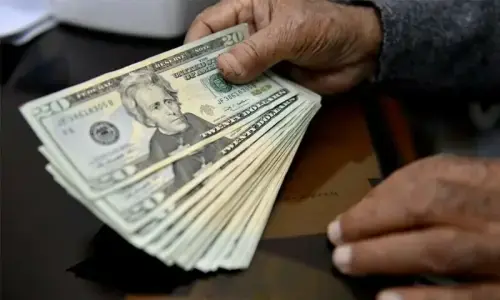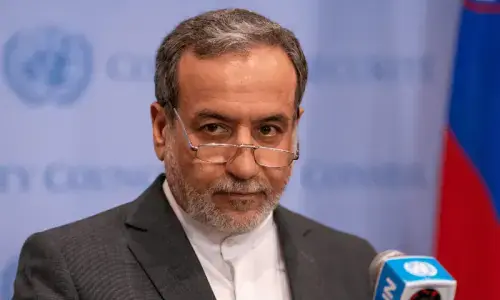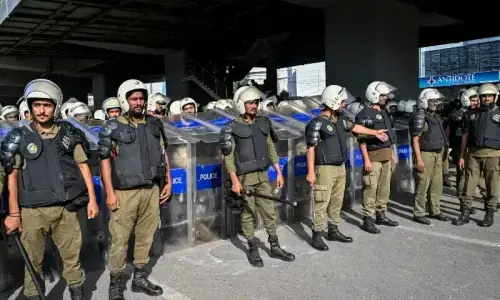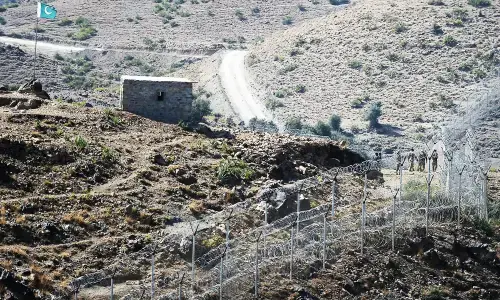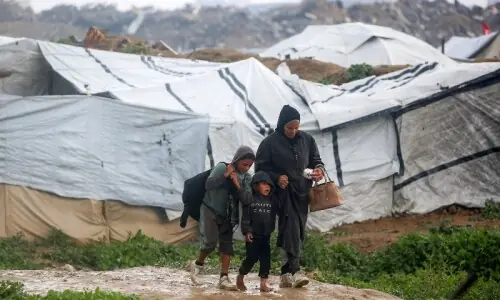BARRING minor issues of some seasonal diseases, the FY15 paddy crop in Sindh is said to be bumper and healthy. The paddy producers’ only worry is the low price of the commodity in the market at a time when their cost of production is attaining new highs.
The Sindh-based growers do not pin much hope on the recently announced Rs341bn package for farmers. The province’s current paddy crop is estimated at 724,000 hectares, according to agriculture department reports. The Federal Committee on Agriculture (FCA) had proposed a target of 781,000 hectares for the province.
The price for coarse paddy variety has dropped as exports are falling. Paddy producers are being offered a price of Rs750 per 40kg — or the rate prevalent in the year 2008. The growers believe that the government is neither willing to announce a support price nor is it ready to procure rice from millers at a fair price so that they could get a better deal from the rice millers.
The price for coarse paddy variety in Sindh has dropped as exports are falling
A paddy producer in upper Sindh, Gadda Hussain Mahesar, says the farmers’ cost of production varies between Rs35,000-40,000 per acre. Given the market rate of Rs750 per 40kg, they are getting a raw deal. The Rs5,000 per acre subsidy announced in the relief package for each paddy grower in Sindh and Punjab is a joke, he adds.
Pakistan’s rice exports have been declining, says Sindh Abadgar Board’s Abdul Majeed Nizamani. China has stopped importing the coarse variety that is mainly grown in Sindh due to its own crop surplus.
While he realises that the global surplus has affected international prices of the crop, “we contend that regional countries have not left their farmers in the lurch. Instead, they are procuring the crop from their growers at prices fixed by their governments to save their farmers from incurring losses”.
Sindh Chamber of Agriculture General Secretary Nabi Bux Sathio points out that the paddy crop has started to reach the market when the earlier harvest is fetching better prices. But this time, it is not more than Rs700 per 40kg or so. Last year, the earlier crop had fetched Rs1,000 before dropping significantly when the fresh crop had arrived in the market.
He believes that the government doesn’t plan the crop’s size and that if paddy is sown as per properly assessed foreign and domestic consumption requirements, the rice market will become more competitive locally and the farmers will be the ultimate beneficiaries.
The farmers have already invested much on their crop by using the required doses of fertiliser and incurring fuel expenses for tube-wells to water their fields in areas where the groundwater is sweet and irrigation water flows inadequate.
The paddy crop is grown in the non-perennial canals’ command areas of Guddu and Sukkur barrages. Farmers in these areas have no option but to grow paddy. And while they have tried to grow cotton in some elevated land pockets, the crop is usually sown in early kharif, when irrigation water supply is not enough in Sindh. Same is the case with the Kotri Barrage’s command area, where paddy is being cultivated.
As an alternative to rice, many landowners have tried to grow sugarcane. But they face supply and price problems in dealing with sugar mills, and the government does not safeguard their legitimate interests. They are left with no choice but to sow paddy.
Published in Dawn, Business & Finance weekly, September 28th, 2015
On a mobile phone? Get the Dawn Mobile App: Apple Store | Google Play





